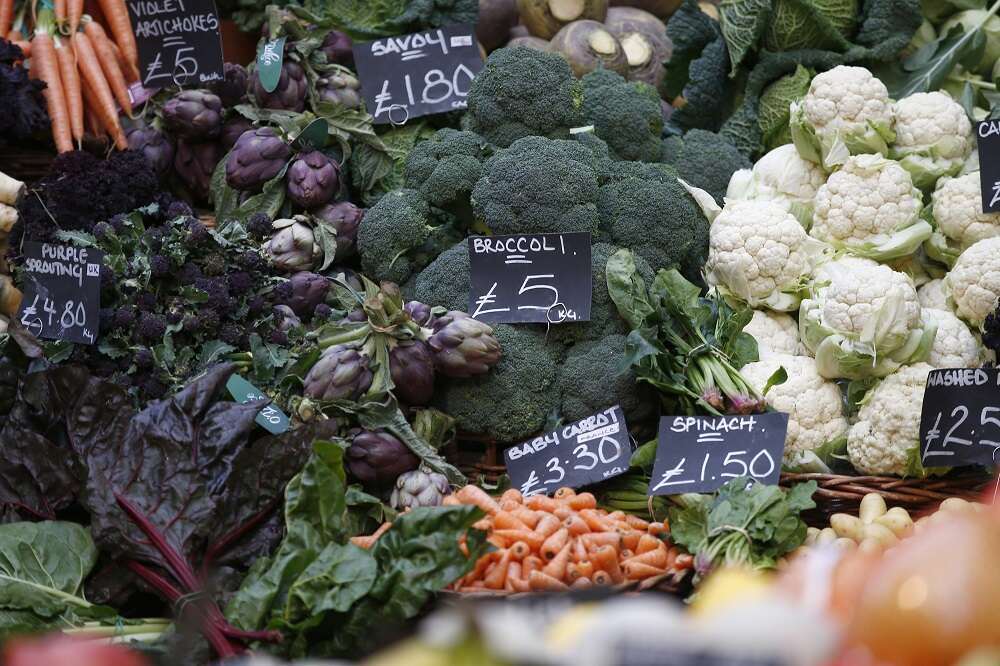
LONDON (Reuters) -Britain set out its first national food strategy on Monday, focused on increasing domestic output of some produce to boost food security while rejecting a recommendation to tackle obesity with new taxes on salt and sugar in processed food.
The government said Russia’s invasion of Ukraine had hit food supplies and caused prices to spike, underlining the need to boost Britain’s home-grown supply of food.
The plan will broadly maintain the current level of food produced domestically, while boosting output in some sectors such as horticulture and seafood, it said.
Farming will receive a total of 270 million pounds ($333 million) of investment in innovation until 2029, it said.
Prime Minister Boris Johnson said the strategy would support farmers and help protect food supplies against future economic shocks.
“Harnessing new technologies and innovation, we will grow and eat more of our own food – unlocking jobs across the country and growing the economy, which in turn will ultimately help to reduce pressure on prices,” he said in a statement.
The strategy follows an independent review by restaurateur Henry Dimbleby last year, which included a recommendation for a new tax on salt and sugar to incentivise manufacturers to reduce their use.
The measure was not included in the strategy. Britain currently taxes sugar in soft drinks, a move credited with reducing the use of the sweetener in drinks.
NO NEW TAXES
Johnson said the government did not want to impose new taxes which put up the cost of food.
“The best way to lose weight believe me is to eat less,” he said.
Minette Batters, president of the National Farmers Union, said the strategy recognised the importance of domestic production “at a time when the war in Ukraine has focused attention on the importance and fragility of our global food security.”
Environmental group Greenpeace UK, however, said the government ignored the recommendations of its own experts and failed to tackle greenhouse gas emissions from meat and dairy sectors which accelerate climate change.
$1 = 0.8121 pounds)
(Reporting by Paul Sandle and Nigel Hunt; Editing by Jan Harve and Frank Jack Daniel)


